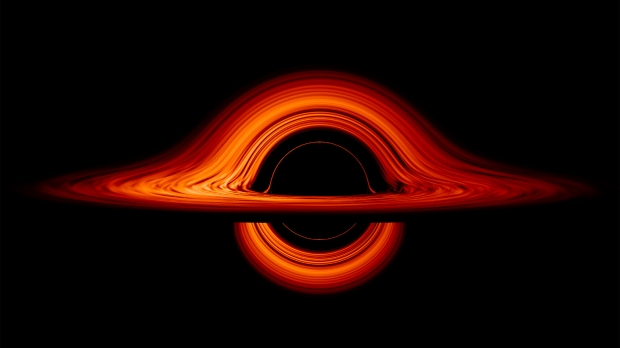Researchers have published a new study in The Astrophysical Journal, simulating tidal disruptions and analyzing their dependence on stellar and black hole mass.
Using supercomputer simulations, the research team modeled the outcome of eight different stars approaching a black hole with a mass of one million times our Sun. All of the stars are stretched and deformed by the gravitational forces of the black hole, undergoing spaghettification, with gravity destroying some entirely. When destroyed in a "tidal disruption event," the star is pulled apart into a long stream of gas and absorbed by the black hole.
The simulations are the first to combine realistic stellar density models with the physical effects of Einstein's general theory of relativity. Simulated stars had masses ranging from one-tenth to ten times the mass of the Sun. The team found that the star's survival depends more on its density than its mass alone.
By altering other parameters, the researchers investigated how differing black hole masses and the proximity of stars on their close approaches affected tidal disruption events. The results will assist astronomers in understanding how these events occur and predict their future occurrence.
You can view some of the simulations in the video above, and read more from the study here.


